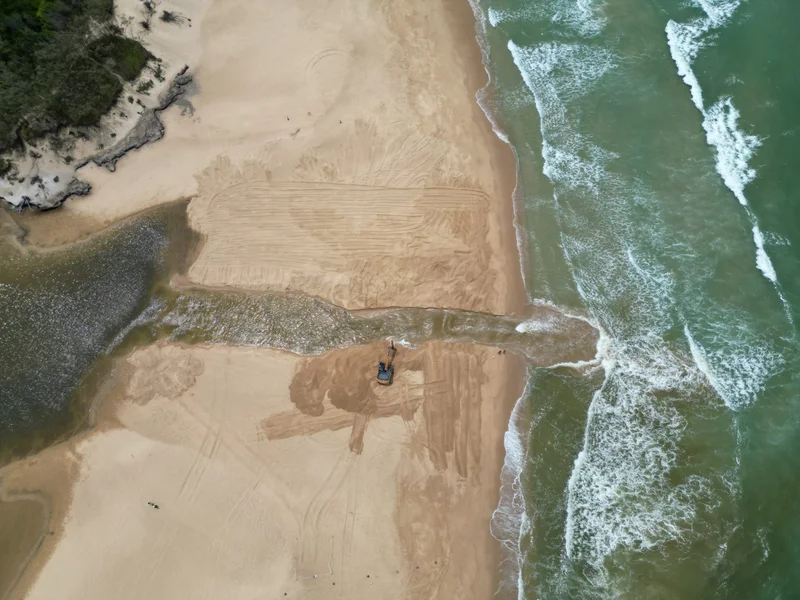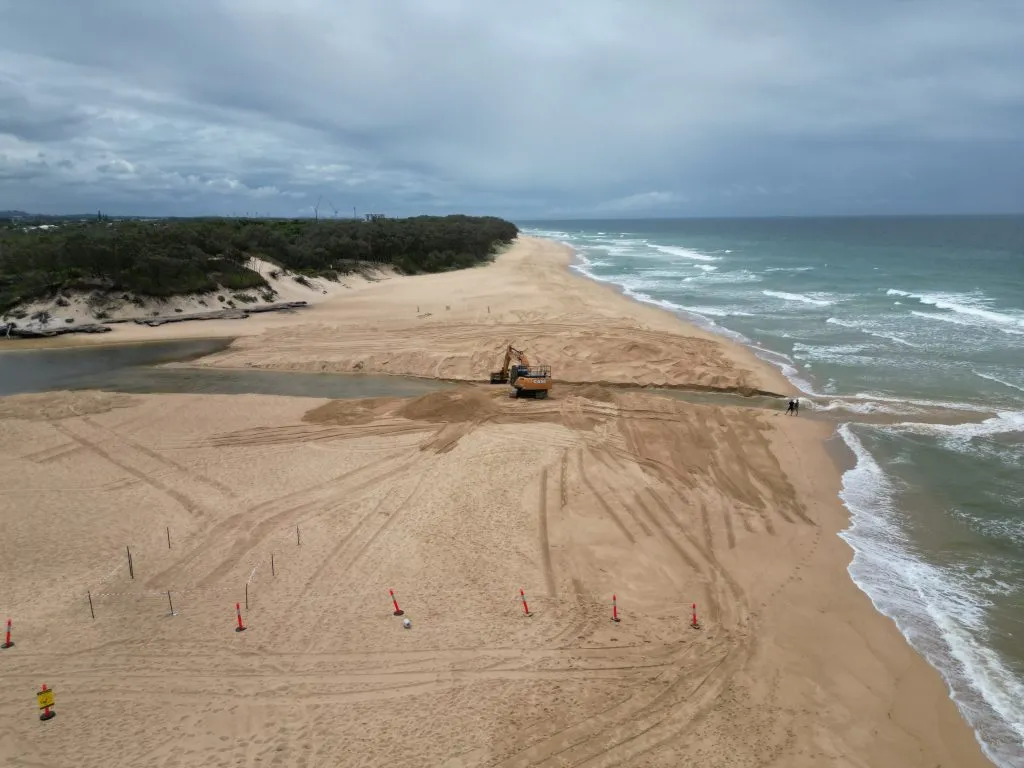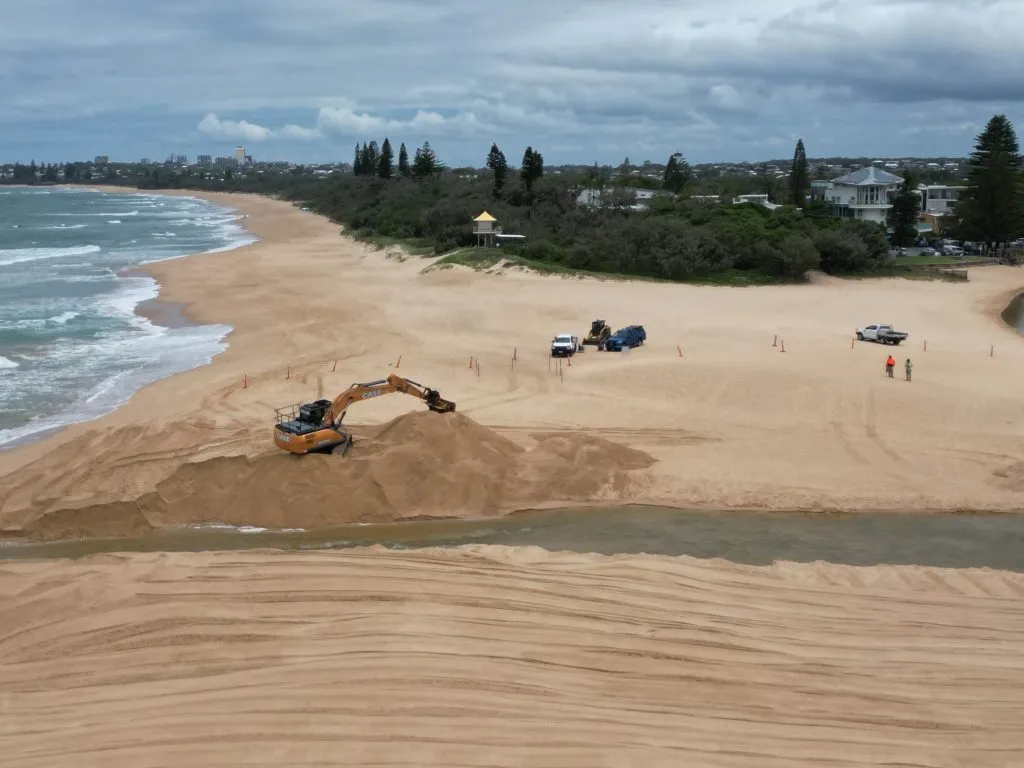"ICOLLS" Currimundi Lake lingo explained
Did you know Currimundi Lake is classified as an ICOLL…so what's that?

What is an ICOLL?
An ICOLL (Intermittently Closed and Open Lakes and Lagoons) is a coastal lake or lagoon that alternates being open or closed to the ocean.
ICOLLS don’t always stay open to the ocean. Sometimes sand closes off the entrance for weeks, months or even years at a time.
Why doesn’t council keep the entrance open all the time?
ICOLLs should be left to function as naturally as possible. Under our Queensland Government permit conditions, we are only able to open the entrance if there is going to be a risk to public safety through flooding upstream or if there is a significant decrease in water quality.
When our permit conditions allow us to open the lake entrance, we do this when the tides are right so we have the time needed to dig a suitable channel with the best chance of it staying open.


What causes the entrance to close or open?
ICOLLs close when ocean waves and tides push sand from offshore into the entrance, which gradually closes the entrance channel.
When there is sufficient water flowing into the lake or lagoon from the surrounding catchment– like during a rainfall event – water levels within the ICOLL will rise.
The force of this high-water level flows over the sand and rapidly scours an entrance channel through the beach to reopen the ICOLL to the ocean.
How long can the entrance stay closed for?
Sometimes sand closes off the entrance for weeks, months or even years at a time. It’s difficult to predict how long the lake entrance will stay open for because there needs to be a lot of water flowing out of the lake to maintain the opening.
What are the benefits of a closed entrance?
A closed ICOLL can have many benefits – for Currimundi Lake a spring/summer closure means less midge larvae and a lower lakeside biting midge population. This is because the midge breeding habitat, at the high tide mark, is flooded and it disrupts the breeding cycle.
Are closed ICOLLs “unhealthy”?
Closed ICOLLs can often cause community concern over issues such as perceived poor water quality, unpleasant smells and odour, flooding of low-lying areas and the health of fish stocks. However, just because an ICOLL is closed, it doesn’t mean it has poor water quality or should be opened.
Although the entrance is closed there is still water circulation occurring within the lake and tidal exchange through the sand.
Do we monitor the water quality?
We regularly monitor water quality of ICOLLs to check they comply with the Queensland Water Quality Guidelines. Values are compared with the SEQ regional guideline values for physico/chemical indicators (slightly to moderately disturbed waters) – Enclosed coastal water type.
What other Sunshine Coast ICOLLs are there?
Sunshine Coast ICOLLs are Currimundi Lake, Coondibah Lake, Bunbubah Creek, Tooway Lake and Stumers Creek.
For more information on intermittently closed and open lakes and lagoons (ICOLLs), search “Coastal Management” on Sunshine Coast Council’s website.
Last edited on:
First published on: